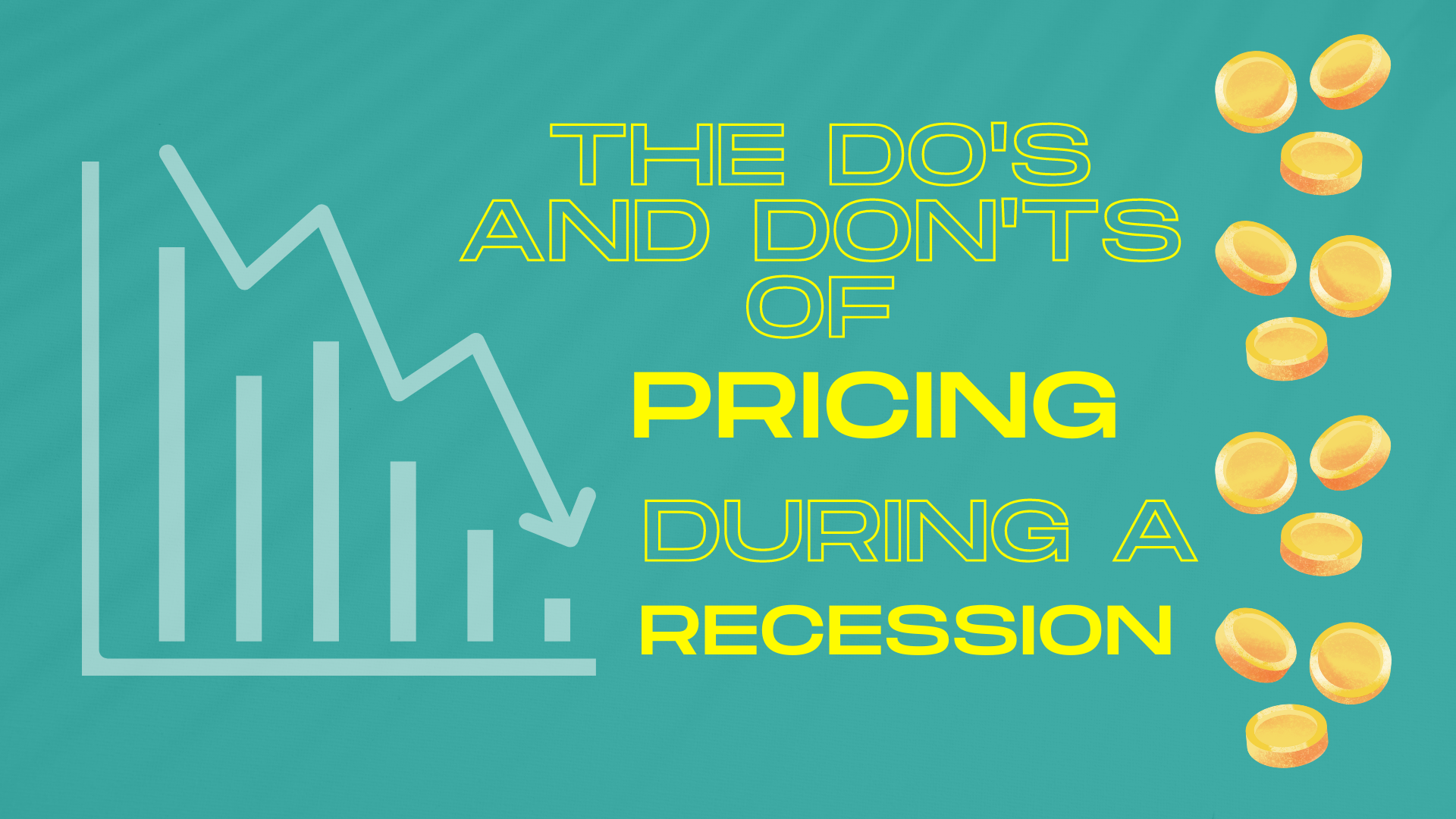No matter how big or successful your company is, maintaining business throughout a recession is hard. With fluctuating demands, losses in sales and competitive price drops, the whole experience can feel like a rollercoaster ride. So how do you survive the economic chaos?
To help guide you through, we’ve created a comprehensive list of pricing do’s and don’ts. These tips can help you find long-term solutions to your turbulent, but hopefully temporary, problems and ensure you not only survive the recession but develop strategies to help you thrive long after.
The Do’s
Do promote your value
Unforeseen circumstances can quickly change the landscape of the economy. However, these external factors shouldn’t directly impact the value of your products or services. Therefore, we believe the best way to navigate a recession and stand out from your competitors is to focus on communicating the intrinsic value of your products and services. Through effective marketing, you can remind your clientele of your unwavering commitment to high-quality service and customer satisfaction regardless of the economic landscape.
Not to mention that it will take you a lot longer to do all your finances than a professional anyway. Why would you waste your time when you could be doing what you do best and what you actually enjoy?
Do control your costs and address inefficiencies
Controlling your prices during a recession is incredibly important. Why? Because the decisions you make during times of crisis strongly reflect your company standards and values. Make the wrong call, and it can irreparably damage your reputation and relationships with customers, which in turn will harm your sales long after the recession is over.
Instead of altering your prices to increase your profit margins or sales, focus on streamlining your companies’ processes. Address any inefficiencies, create long-term solutions and invest in your team’s development.
Do create valuable bundles
Dramatic price cuts aren’t as effective as you may think – not to mention, they’re almost always unsustainable. Instead, you want to find solutions that will accommodate your customer’s current needs without compromising the value of your products or services.
Creating valuable bundles and packages is one solution that is both reliable and sustainable. By offering a range of bundles (from low to high value), you’re able to attract a variety of customers and cater for their varying needs. As a result, you’re able to drive up sales, preserve the value of your products and services, and accommodate your cost-conscious customers throughout these difficult times.
Do keep looking ahead
Every business owner, CEO and partner knows that for a business to succeed, you must constantly be looking ahead – innovating and improving upon your current position. (Even amidst a recession, you must focus on long-term solutions.) Therefore, it’s vitally important to focus on your research and development strategies. Assess your customer’s wants and needs – ask them how you can improve and really listen. You can then use this information to improve upon and create products/services that incentivise customers to start (or continue) investing in your business.
The Don’ts
Don’t rapidly reduce your prices
There are several reasons why rapidly reducing your prices is an ineffective and ultimately damaging tactic during an economic downturn. However, we believe the most significant reasons are:
- You can destroy your long-term value. If you lock in a long-term price drop, you’re signaling to customers that the value of your products and services are significantly lower than your standard price point.
- Discounts won’t resolve your demand issues. If your products or services aren’t currently in demand, lowering your prices won’t change a thing. For example, there was little to no demand for theatre tickets at the height of the pandemic. However, since restrictions have eased, sales have returned to normal, and box offices have successfully maintained their original prices.
So don’t fall into the trap of lowering your prices – they are not the problem.
Don’t rapidly increase your prices
If you’re experiencing a sudden surge in sales – fantastic! Be grateful, not greedy. Rapidly increasing your prices when your products/services are in high demand implies that you are taking advantage of your customers and their needs. Not only will this alienate your customers and damage your reputation, but it can also lead to legal implications. So, whenever you are increasing your prices, make sure you do so ethically and sustainably.
Don’t get into a pricing war
If a competitor reduces their prices, don’t immediately assume you have to do the same. Competitive pricing will only damage your value (and your profit margins). Now, that isn’t to say you can’t develop a cheaper product or service that’s of equal value to your competitor’s offering – but you should only cheapen your services if you have adjusted their intrinsic value.
Remember, customers will respect your pricing so long as the services or products you provide are of a high standard.
Don’t focus on quality over quantity
Guiding your business through a recession is no mean feat. It takes a lot of courage to maintain your prices and values. However, this perseverance will help to preserve your reputation and uphold your high standards. So, instead of taking a reactive approach, focus on being proactive! Find long-term solutions, provide non-monetary discounts and drive sales based upon the quality of your products and services.




